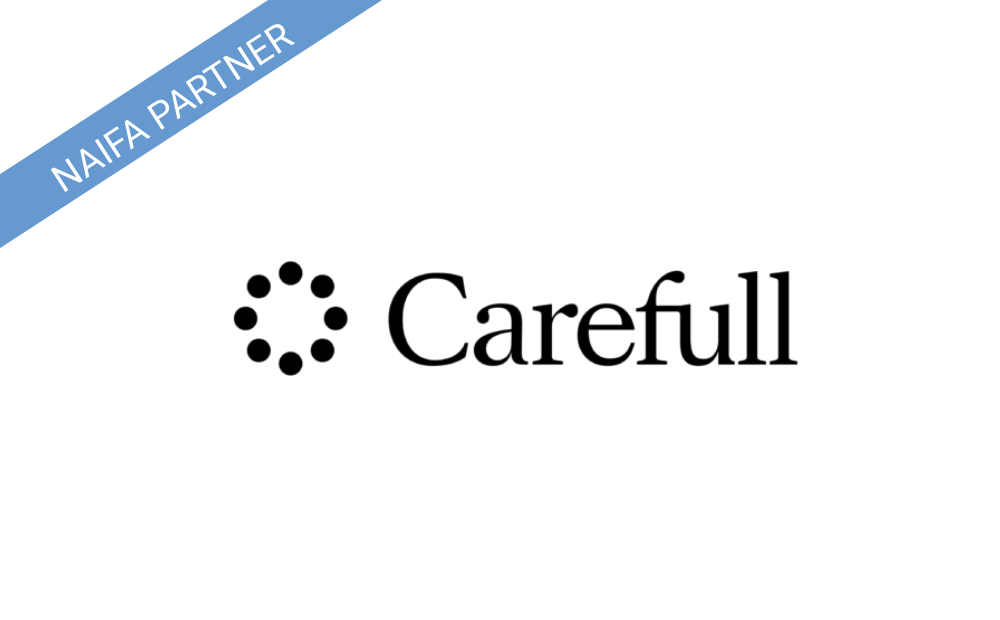Courtney Heiden’s dad always took care of the family finances. In fact, he had a background in finance and managed client accounts at the large companies where he worked. So it came as a complete shock when there was a knock on her parents’ door several years ago, and the man at the door said the house was going to be auctioned off the next day.
“My mom actually thought they were kidding or maybe had the wrong house,” Heiden said. “And the man at the door said, ‘No, there's not been a mortgage paid in nine months.’ Their world kind of came crashing down at that moment.”
Heiden’s father, who had been so financially adept, had been forgetting to pay the bills—not just the mortgage but many other bills. As it turned out, he had early onset Alzheimer’s disease. Although he had been having some trouble finding words while speaking, Heiden’s father hadn’t shown obvious signs of memory loss. It was his financial mistakes—which Heiden’s mom didn’t catch until it was too late because she wasn’t involved with the family finances—that forced his family to recognize that something was wrong.
Unfortunately, this story isn’t unique. Research recently published in JAMA Internal Medicine found that those with Alzheimer’s disease and related dementias showed a pattern of missed bill payments up to six years before a diagnosis.
If there had been a second set of eyes on the family finances, the mistakes Heiden’s father was making as a result of cognitive decline could have been spotted sooner. “Financial monitoring is super important to pick up on some of those early symptoms,” said Heiden, who now is a financial advisor who specializes in long-term care planning. And it’s something that all financial advisors should be encouraging clients to have in place as they age.
Have questions about financial monitoring technology? Join Carefull for a special webinar "Financial Technology that Builds Long-Term Relationships for Long-Term Care" on January 11, 2022 at 1 pm eastern.
The importance of account support
As an advisor, you likely have helped clients put a plan in place to protect their income in retirement. However, that plan could easily be derailed if your clients’ financial decision-making ability is impacted by cognitive decline.
There are a whole host of money mistakes your aging clients could be making. Here are common ones based on bank and credit card account monitoring data from Carefull, a new service built to organize and protect aging adults’ daily finances.
- A change in spending habits is the most common issue among Carefull’s older users. A decline in financial decision-making ability can lead to an increase in purchases or overall spending.
- Duplicate transactions are the second-most common money mistake Carefull sees and can quickly drain bank accounts if made often enough.
- Late or missed payments that happen on a regular basis are a sign that there’s an issue that needs to be addressed before accounts are turned over to collections.
- Recurring charitable contributions are flagged by Carefull and can be common among those experiencing cognitive decline because they’re either forgetting about previous contributions or not considering the impact that excessive contributions are having on their finances.
Unless there is a second set of eyes on your clients’ daily finances, small mistakes could take months or years to notice. By that point, the damage could be irreversible.
In addition to making money mistakes, aging clients could be falling victim to scams and fraud. Unusual transactions can go unnoticed if accounts aren’t regularly being monitored.
In fact, the researchers who contributed to the JAMA article on the financial presentation of Alzheimer’s disease noted that there is a need to protect adults living with dementia from the harms of poor financial self-management and financial fraud and abuse. “For example, financial institutions could potentially play a larger role in tracking uncharacteristic transactions and other behaviors consistent with cognitive impairment,” the researchers wrote.
Why leave it up to financial institutions that might take years to adopt that role when financial advisors are in a unique position to help clients set up monitoring of their daily financial accounts today?
How to discuss account monitoring with clients
If your clients haven’t already set up online access for their checking, savings and credit card accounts, encourage them to do so. Highlight the fact that having online accounts makes it easier to keep frequent tabs on those accounts rather than waiting until the end of the month to get account statements.
Also, let them know that by having online accounts, they can take advantage of technology to monitor and protect those accounts. Point out that busy schedules can make it difficult to keep constant tabs on financial accounts. Without constant monitoring, though, it’s easy for things to slip through the cracks—including unauthorized transactions. Using technology to monitor accounts for them can alert them to suspicious activity that might otherwise go unnoticed.
Encourage aging clients to think of monitoring as a second set of eyes that will help protect their money. It’s a way for them to stay safe and maintain their financial independence for as long as possible.
How to help clients set up account monitoring
There are a variety of ways that clients can keep tabs on their accounts. They can sign up for alerts through their online bank and credit card accounts to be notified of transactions. They can sign up for credit and identity monitoring services. Better yet, they could use a service that provides credit and identity monitoring and financial account monitoring that goes beyond the alerts that banks and credit cards offer.
One such service is Carefull. Available as a mobile app and as a desktop service, Carefull can be linked to your clients’ bank and credit card accounts and will monitor every transaction for more than two dozen issues that commonly affect older adults—including late and missed payments, duplicate payments, changes in spending, recurring charitable donations, unusual transactions and other signs of fraud. It also provides credit and personal information monitoring and will send alerts by email and text message when something is amiss.
Your clients have the option of adding you and trusted family members to their Carefull “Circle” of support. You and those trusted family members will be able to see your clients’ financial accounts in one place and get alerts when Carefull spots something unusual. Carefull also offers a Pro version that allows advisors to monitor multiple clients’ accounts at once.
Carefull maintains “read-only” access to accounts. So your clients’ trusted family members won’t be able to make transactions within those accounts. It will allow your clients to maintain their independence for as long as possible while giving you and their family members peace of mind that mistakes can quickly be detected and fixed.
Even if your firm’s compliance rules don’t allow you to receive account alerts on behalf of clients, ensure that your clients are using a system to monitor their accounts for mistakes and signs of fraud and that they have someone they trust who can be a second set of eyes to help protect their financial accounts.
Learn more about Carefull for Advisors and Planners.
Cameron Huddleston is the author of "Mom and Dad, We Need to Talk: How to Have Essential Conversations With Your Parents About Their Finances". She also is director of education at Carefull.
Carefull is a NAIFA partner. For members, you can learn more about Carefull and how to partner within the Member Portal.













-CMYK.png?width=200&name=LifeSecureLogo(F)-CMYK.png)



%20.png?width=148&height=55&name=b.%20RSSA_Logo_(R)%20.png)


